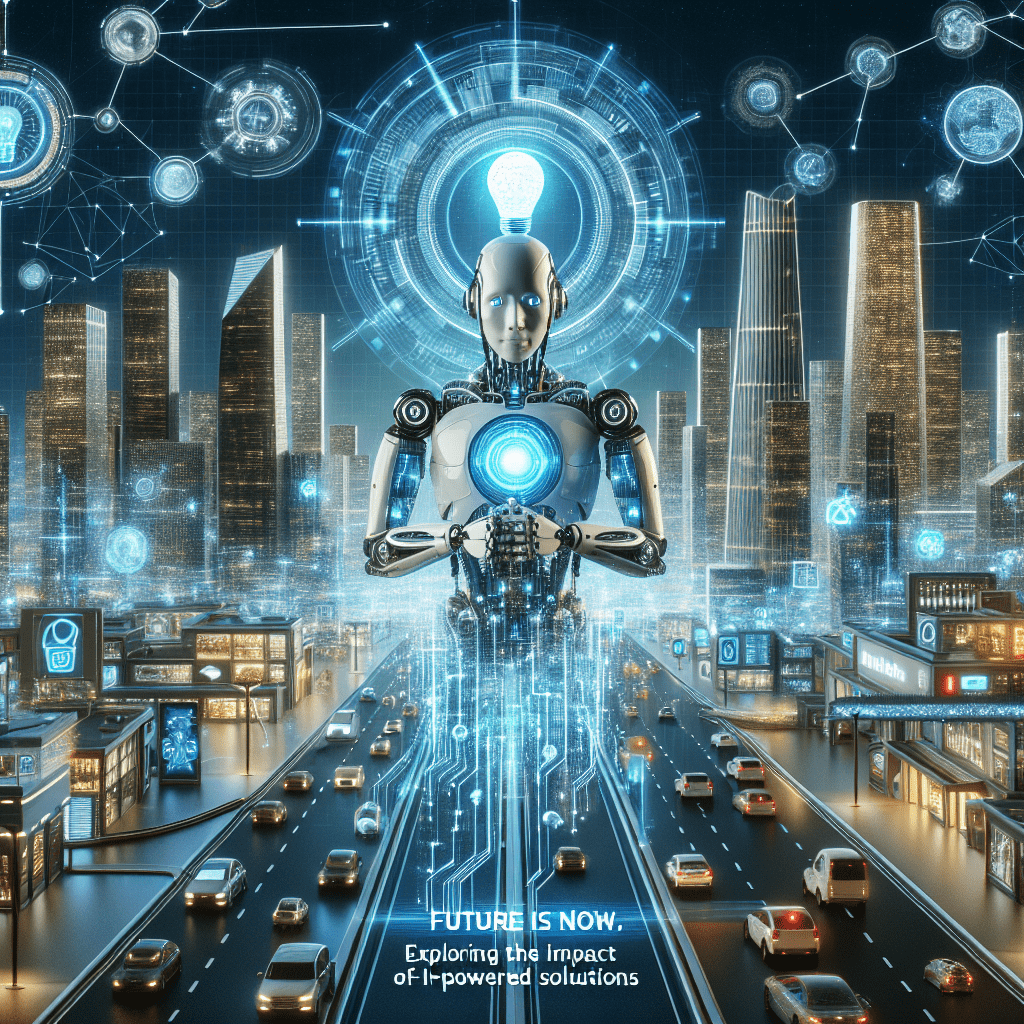Artificial Intelligence (AI) has been a hot topic in recent years, with its potential to revolutionize industries and transform the way we live and work. From self-driving cars to personalized recommendations on streaming platforms, AI has already started to make its mark on society. But what does the future hold for AI-powered solutions? In this article, we will explore the impact of AI on various industries and discuss the potential benefits and challenges of this rapidly evolving technology.
The Rise of AI
AI is a branch of computer science that aims to simulate human intelligence in machines. This includes tasks such as learning, reasoning, problem-solving, perception, and language understanding. AI-powered solutions use algorithms and data to make decisions and perform tasks that traditionally required human intelligence.
AI has already started to transform industries such as healthcare, finance, manufacturing, and retail. In healthcare, AI-powered systems can analyze medical images, assist with diagnoses, and personalize treatment plans. In finance, AI algorithms can detect fraud, automate trading, and provide personalized investment advice. In manufacturing, AI-powered robots can automate repetitive tasks, improve quality control, and increase efficiency. In retail, AI can analyze customer data, personalize marketing campaigns, and optimize inventory management.
The Benefits of AI
AI-powered solutions offer several benefits to businesses and society as a whole. These include increased efficiency, improved accuracy, reduced costs, enhanced customer experience, and new revenue opportunities. AI algorithms can process vast amounts of data quickly and accurately, helping businesses make better decisions and develop new products and services. AI-powered solutions can also automate repetitive tasks, freeing up employees to focus on more creative and strategic activities.
AI can also help businesses improve customer experience by personalizing interactions and anticipating customer needs. For example, AI-powered chatbots can provide quick and accurate responses to customer queries, improving satisfaction and reducing waiting times. AI can also help businesses identify new revenue opportunities by analyzing customer data and predicting future trends.
The Challenges of AI
While AI offers many benefits, it also poses several challenges. These include concerns about data privacy, bias in algorithms, job displacement, and ethical issues. AI-powered solutions often rely on vast amounts of data to make decisions, raising concerns about data privacy and security. There is also a risk of bias in AI algorithms, which can lead to unfair or discriminatory outcomes.
AI-powered solutions have the potential to automate many tasks currently performed by humans, leading to concerns about job displacement. While AI can create new job opportunities in fields such as data science and AI engineering, it can also eliminate traditional jobs in industries such as manufacturing and retail. There are also ethical issues to consider, such as the potential misuse of AI for surveillance or military purposes.
The Future of AI
As AI continues to evolve, its impact on society will only grow stronger. AI-powered solutions will become more sophisticated, enabling businesses to automate complex tasks, personalize interactions, and develop innovative products and services. AI will also play a crucial role in addressing global challenges such as climate change, healthcare, and education.
To harness the full potential of AI, businesses and policymakers must work together to address the challenges posed by this rapidly evolving technology. This includes developing regulations to ensure data privacy and security, promoting diversity and inclusion in AI development, and investing in reskilling and upskilling programs to prepare the workforce for the AI-driven economy.
Conclusion
AI-powered solutions have the potential to revolutionize industries and transform the way we live and work. While AI offers many benefits, it also poses challenges that must be addressed to ensure a responsible and ethical deployment of this technology. By working together to develop regulations, promote diversity, and invest in workforce development, we can harness the full potential of AI and create a more inclusive and sustainable future for all.
FAQs
What is artificial intelligence?
Artificial intelligence (AI) is a branch of computer science that aims to simulate human intelligence in machines. This includes tasks such as learning, reasoning, problem-solving, perception, and language understanding.
What are the benefits of AI?
AI-powered solutions offer several benefits to businesses and society, including increased efficiency, improved accuracy, reduced costs, enhanced customer experience, and new revenue opportunities.
What are the challenges of AI?
The challenges of AI include concerns about data privacy, bias in algorithms, job displacement, and ethical issues. AI-powered solutions raise questions about data privacy and security, bias in algorithms, job displacement, and ethical implications of AI Applications.
Quotes
“The development of full artificial intelligence could spell the end of the human race.” – Stephen Hawking
#Future #Exploring #Impact #AIpowered #Solutions


